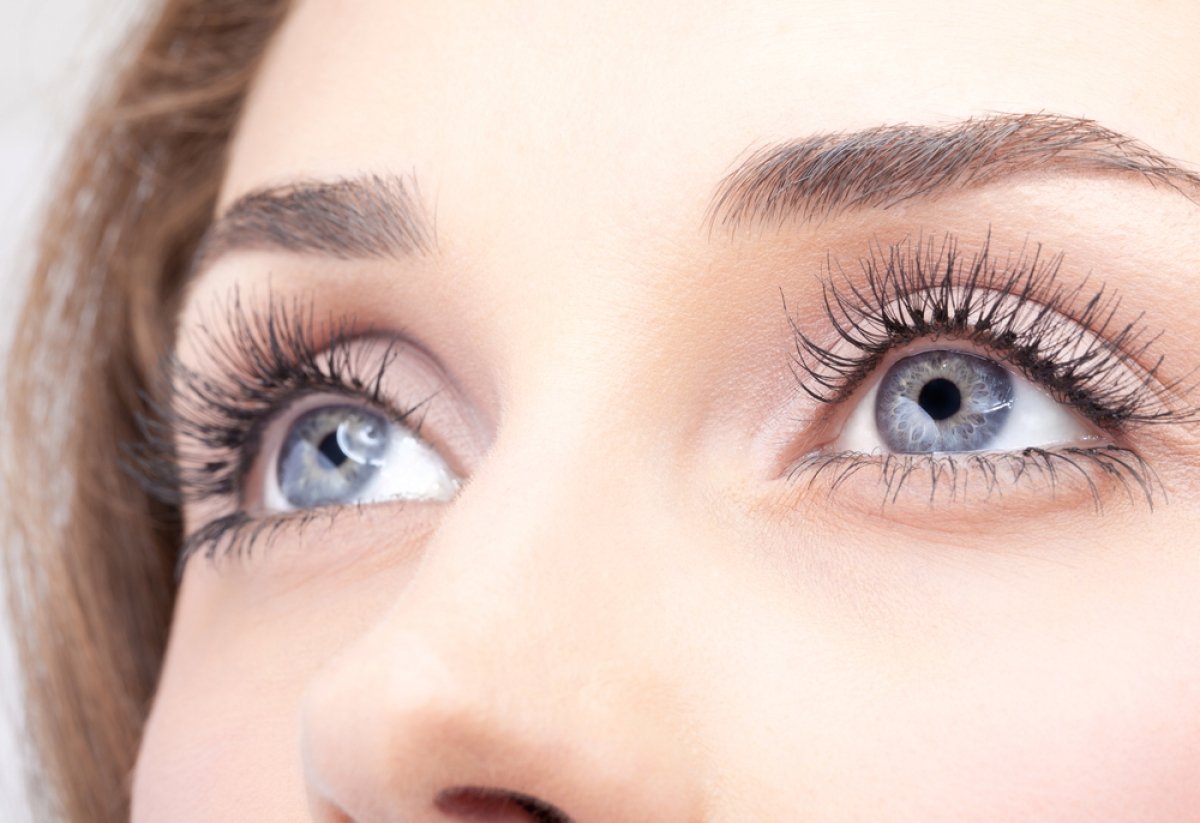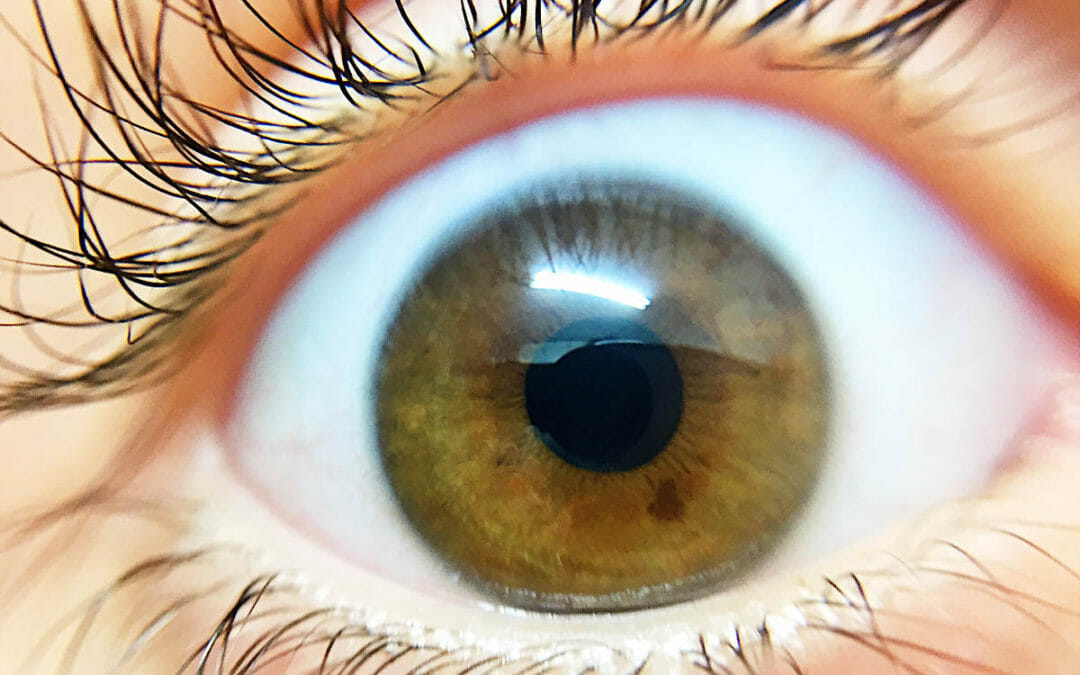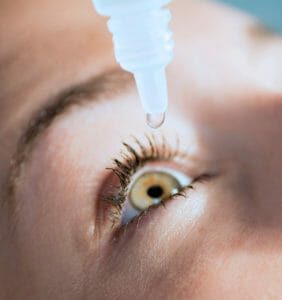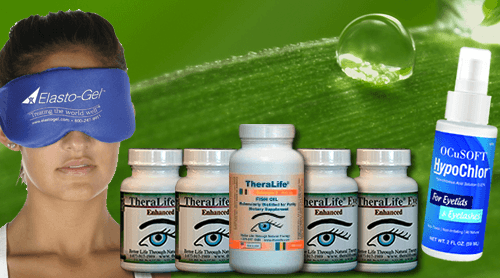Tears keep our eyes lubricated all day.
Tears contain moisture, oil, mucous, and immune substances that provide moisture, lubricating, and sometimes antibiotic properties.
The dry eye condition results in redness, itchiness, sensitivity to sunlight, blurred vision, and a headache.
Can dry eyes cause blurred vision?
Yes, dry eyes can cause blurred vision.
Blurry visions are an underlying problem that may cause dry eyes.
You can help relieve symptoms with a good eye treatment.
Thorough knowledge of the causes is essential for treatment.
Blurry vision are likely to indicate a more serious eye health problem that requires immediate care.
Why blurred vision?
Dry eyes can occur when one produces less than sufficient tears or has poor-quality tears.
Your tear glands aren’t doing their job, or your tears evaporate too quickly. In that case, you can get dry eyes—an unpleasant condition characterized by redness, itchiness, light sensitivity, blurred vision, and an often-painful sight gritty sensation in your eye.
The inflammation causes tearing; the eye surface becomes damaged,
Treatments can achieve clear vision.
Deeper Problems Dry Eyes & Blurred Vision Could Indicate
Although dry eyes and blurry vision are generally harmless symptoms, these may be symptoms of deeper problems.
The overall health of your eyes is at risk when insufficient tears fail to provide the oxygen and nutrients needed to stay healthy.
In addition to reduced tear production, there are other medical issues such as autoimmune Sjögren’s, sarcoidosis, lupus, or rheumatoid arthritis can damage the tear glands.
The dangers of dry eyes
Chronic dry eyes can be a complex and often complex condition caused by multiple factors.
If you’ve undergone LASIK treatment and can see correctly, you could get dry and swollen eyes.
Learn more about treatment for Sjogren’s syndrome here.
Dry eye syndrome
Dry eyes occur when your body has decreased tear production. The syndrome can also be called Keratoconjunctivitis sicca.
The occurrence may go away alone or remain long-time.
What do your tears do?
Tears provide lubrication, reduce the risk of eye infection, wash away foreign matter in the eye and keep the eyes’ surface smooth and clear.
Tears help protect eye tissue against debris and infections.
Each time you blink, tear film spread over your eyes, then drain into the inner corners of your eyelids to the back of your nose. If you don’t make enough good-quality tears, your eyes can be dry and irritated.
Poor quality of tears.
Tears are made up of three layers: oil, water, and mucus layer. Each component protects and nourishes the front surface of the eye.
A smooth oil layer helps prevent evaporation of the water layer.
The mucin layer spreads the tears evenly over the eye’s surface. If the tears evaporate too quickly or do not spread evenly over the cornea due to deficiencies with any of the three tear layers, dry eye symptoms can develop.
If you have tears without oil, it can evaporate causing dry eyes because you have blocked oil glands. The meibomian gland malfunction is treated with warm compress and scrubs to remove dead skin, oil, and other toxins.
Diagnosis
Dry eyes are diagnosed with a thorough examination.
A series of tests that measures the quantity and quality of tears.
Symptoms of dry eyes
Symptoms of dry eyes can often irritate, scratchy sensation, irritable or burning sensation, excessive watering, light sensitivity, and blurred vision.
Other symptoms of dry eyes include sensitivity to light, crusty eyes, meibomian gland dysfunction, watery eyes, and blepharitis.
Blocked tear ducts can cause watery eyes. Minor surgeries can open up the tear ducts to allow tear flow.
Causes
Dry eyes develop when there’s a problem with your natural tears.
Causes include decrease tear production, tears evaporate too quickly or clogged oil glands (MGD).
Seniors often experience dry eye syndrome because they don’t produce enough tears.
Tears have three layers: oil and mucus. It prevents the water layer from leaking, and the resulting tears spread uniformly throughout the eye. When each layer has no proportions, it can make your eyes dry.
Aging:
Dry eye is a natural aging process. Most people over the age of 50 have dry eye symptoms.
Poor blood flow:
Poor delivery of blood and nutrients to the eye.
Some medical conditions
When your immune system attacks a part of the body. Examples are lupus, rheumatism and Sjogren’s Syndrome, a disease affecting saliva, and multiple sclerosis
Certain medications, such as anti-inflammatory drugs, often have dry eyes.
Allergies may cause dry and irritated eyes.
Using a hot or air conditioner to heat a room can dry your tear film off.
If working at work requires constant eyesight, your vision could dry from a lack of blinking.
Even your climate will increase your risk of developing dry eyes.
Medications
Certain medications, including antihistamines, decongestants, hormone replacement therapy, antidepressants, and drugs for high blood pressure, acne, birth control, and Parkinson’s disease can cause dry eyes.
Contact Lens
If your eyes are dry, you can get very uncomfortable wearing contact lenses.
Most lenses sit on the corneal surface—which can exacerbate dry, irritated eyes, reduce lubrication, and are just not comfortable.
Eye Surgery
Dry eyes are often side effects of cataract surgery or refractive surgery, correcting vision problems.
If you have gone through LASIK surgery to correct a vision problem, you may also develop dry eyes. The tear-producing nerve may be damaged during the procedure.
Tear Duct Eye Infections
Also known as dacryocystitis, the infection happens when the tear gland in your nose and eye is blocked or contaminated with bacteria.
It is more common at newborns ages and can occur at all ages, and is rare. The symptoms include pain and swelling. Antibiotics are usually the best treatment.
Glaucoma
If you are diagnosed with glaucoma, you could have an increased risk of vision impairment or even vision loss.
Environmental factors
Environmental conditions, such as wind and dry air, hair dryers, air conditioned room can also decrease tear volume due to increased tear evaporation.
A lot of wind can do it (that includes riding a bike without other protective eyewear) and living in colder, drier climates.
Low humidity can cause eyes to become irritated. Wind may cause it (riding a bike without eye protection) or even living in warmer climates.
Computer screen
If your job requires you to stare at a computer screen all day, you might develop dry eyes from not blink regularly.
Excessive screen time, reading, watching television, and driving can reduce blinking.
Menopause
Hormonal changes often cause dry eyes.
Treatments
Options to treat dry eyes include adding tears, conserving your tears, increasing tear production, and decrease inflammation leading to dry eyes and blurry vision.
Eye drops
Your eye doctor most frequently will prescribe drops and tear-in artificial tears.
They moisturize eye tissue and rehydrate it, reducing pain and protecting against damage.
However, the effect of drops does not last long.
Other treatment for dry eye includes scleral contact lenses.
Medications
Treatments for dry eyes aim to restore the average amount of tears to reduce dryness and related discomfort and maintain healthy vision.
Dry eyes are a chronic problem. Eye doctors prescribe eye drops to increase tear production. In general, treatment for dry eye includes adding and managing tears by removing artificial tears with an over-the-counter solution.
lubricants
In cases where these treatments don’t work out, your eye doctor may recommend alternative treatments for a particular cause. Most eye doctors recommend lubricants for the eyes.
Essential fatty acids
Nutritional supplements containing essential fatty acids containing fatty oils may help decrease dry eye symptoms in some people.
Scleral Lenses
Scleral lenses is a large contact lens to protect your cornea.
Lifestyle changes
Sometimes a simple lifestyle change can help relieve symptoms like dry eyes or blurred vision.
In cases where these treatments don’t work out, your eye doctor may recommend lubricants for the eyes.
Long term use of Artificial Tears
Frequent use of drops will cause your eyes to be drier.
Some eye drops have chemicals and can cease functioning after prolonged use.
Proper eye care can prevent eye disease. If you suffer from dry eyes, make the lifestyle changes listed below an essential part of your routine.
Medically reviewed publications
National Eye Institute. https://www.nei.nih.gov/learn-about-eye-health/eye-conditions-and-diseases/dry-eye. Accessed Aug. 4, 2020
American Optometric Association. https://www.aoa.org/patients-and-public/eye-and-vision-problems/glossary-of-eye-and-vision-conditions/dry-eye. Accessed Aug. 4, 2020.





